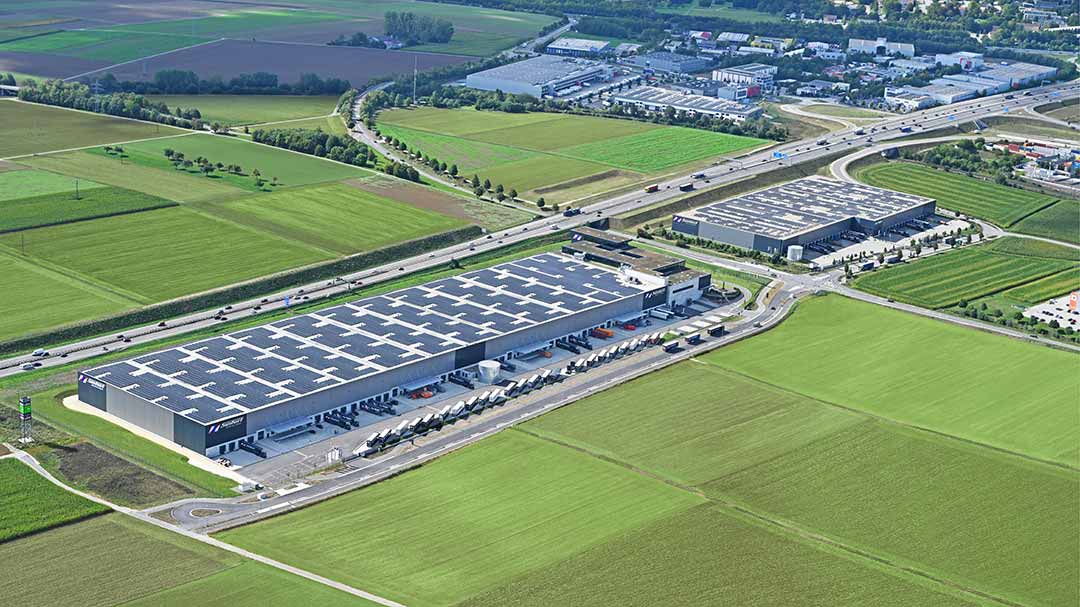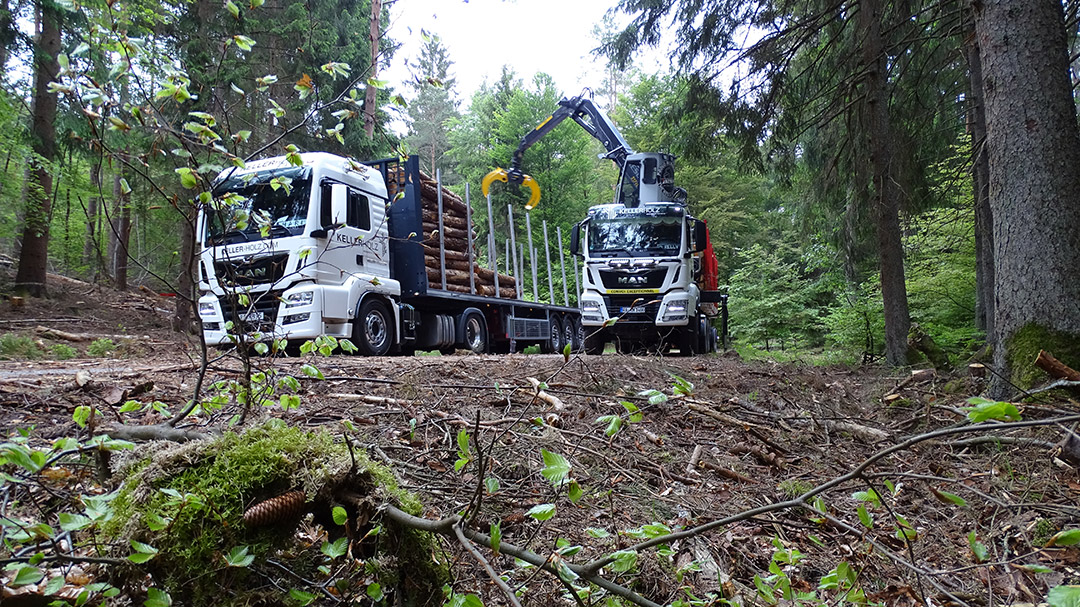Text: Juliane Gringer
Photos: Conow
The HW80, a particularly flexible 2-way tipper trailer, has been used for decades: its simply yet ingenious construction has proven so successful that it has only experienced very few updates since its development in the 1970s – one of which are the BPW axles.
Heaps of earth in a field, large holes, hills and overhangs: no problem for the 2-way HW80 tipper trailer. It drives along its paths reliably and has been used by farmers to transport grains to yards for decades, among other things. The HW80 recipe for success is based on its highly-agile chassis and flexible leaf springs, which it uses to safely manoeuvre its rigid superstructure across almost any terrain. “The trailer has an unbelievably flexible frame and moves along powerfully, making it particularly good on slopes,” explains Martin Hüttenrauch, CEO of Conow Anhängerbau. The company in Mecklenburg-Western Pomerania produces the HW80 today. Its multifaceted uses have made it a true evergreen: the HW80 is the #onetoolforall solution among agricultural trailers – and Conow Anhängerbau also uses this hash tag to promote it on its social media channels.
Business relations as far as Ethiopia
Built the same way today as 50 years ago
»Through the collaboration between Conow Anhängerbau and BPW, proven technology from East Germany could be successfully fused with West German know-how – a true Success Story.«
Martin Hüttenrauch, CEO of Conow Anhängerbau
BPW garners confidence with the quality and longevity of its products
Original axles from the initial period of the HW80 haven’t been installed for a long time – Conow works together with BPW. “The BPW axles were a sort of upgrade for the HW80 that provided it with even greater quality and safety,” says Hüttenrauch. “BPW was chosen because we were looking for a manufacturer who would do justice to the HW80 – and BPW has very clearly proven it can do this over the past decades, even developing a special axle for converting the HW80. Thus, proven technology from East Germany was successfully fused with West German know-how – a true Success Story.” The robustness and longevity of the BPW running gear is particularly prized for agricultural purposes. As well as the fact that the axles have such a solid construction: “Their mechanical construction is simply perfectly designed, making them ideal for agricultural use.” According to Hüttenrauch, many customers fully load the trailer, which is not legally intended. This means they are quickly overloaded: “If you are travelling through low mountain ranges, for example, an overloaded superstructure can put pressure on the sides or the front and then, 15-16 tons can sometimes shift over one axle instead of nine. We have found that BPW products can cope with that without a problem.”


»I can use the chassis for 50 years, only the superstructure wears from loading and unloading – and that can be restored, then you basically have a new vehicle.«
Martin Hüttenrauch, CEO of Conow Anhängerbau
Damages are easy to repair
A real win, both ecologically and economically
The trailers are also usually used for a very long time: “It’s like with a car. You change your car three times, but the trailer usually stays the same. It’s exactly the same in agriculture. That’s what makes the HW80 so unbelievably appealing: I can use the chassis for 50 years, only the superstructure wears from loading and unloading – and that can simply be restored so that I basically have a new vehicle. Its a real win for users, both economically and ecologically.” The chassis are also highly standardised with their special design: “I can send any superstructure from our production anywhere in the world and it will always fit to an existing HW80 chassis, no matter how old the individual vehicle is.” For example, in 2021 a vehicle constructed in 1973 came to the Conow garage for a full overhaul – and it was modernised there with a new superstructure.
Today, the original model has also gained a big brother: the HW180 is also equipped with BPW axles, has a usable load of around 13 tons and can be used in small stables or by industrial customers farming up to 20,000 hectares of land alike. “These large operations also buy the trailers because they cannot get this flexibility from any other manufacturer. Because the vehicles can be fully used, from the first muck spreading in February, to moving chaff and pallets, down to rapeseed in the autumn – while others can only be brought out a short time for the cereal harvest in the summer and then stand in the barn again for 49 weeks.”

»The Conow style is: ‘Keep it simple”‘. Ideally everything mechanical, no electrics, as this excludes sources of error in use.«
Martin Hüttenrauch, CEO of Conow Anhängerbau
Welding masters
CONOW ANHÄNGERBAU
Conow Anhängerbau specialises in the construction and repair of agricultural trailers. Founded in 1992, the company, with its headquarters on the Mecklenburg lake district, produces trailers such as bale transport trailers, tandem tippers and push-off or overload trailers. It is part of a holding, Conow Holding, which is active in the areas of agriculture, tourism, machine engineering and service trades. Its affiliates rear cattle, build leisure rafts to rent and operate hotels and call centres, among other things. The holding has defined its vision as retaining the originality of nature around Conow, “protecting nature from people and developing it for people in a focused way”. According to Martin Hüttenrauch, the agricultural experience in the holding is precisely what helps his team to test new developments and with them, ideas, over and over again in practice. Conow Anhängerbau has around 65 employees and has currently been handed down to the second generation. It had a turnover of around 6.3 million euros in 2020, 8.4 million in 2021 – and is expecting 9 to 9.5 million in 2022.








